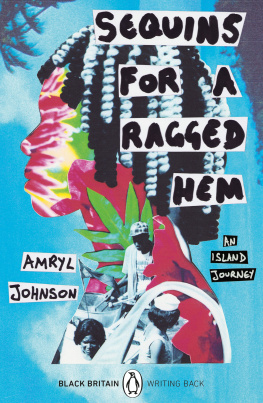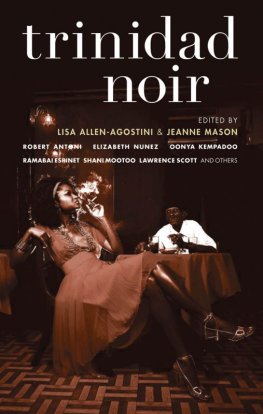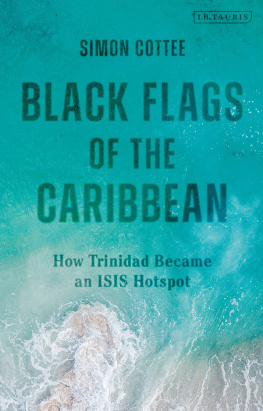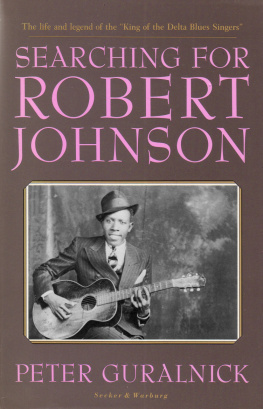About the Author
Amryl Johnson was a poet, author, teacher and performer born in Trinidad. She was brought up by her grandparents until the age of eleven, when she moved to Britain to join her parents. She attended secondary school in London and went on to study British, African and Caribbean literature at the University of Kent. She taught at the University of Warwick. Johnsons work was included in several anthologies, including News for Babylon: The Chatto Book of Westindian-British Poetry, Let It Be Told: Essays by Black Women in Britain, Watchers and Seekers: Creative Writing by Black Women in Britain, The New British Poetry and Daughters of Africa.
Amryl Johnson
SEQUINS FOR A RAGGED HEM
With a new introduction by
Bernardine Evaristo

PENGUIN BOOKS
UK | USA | Canada | Ireland | Australia
New Zealand | India | South Africa
Penguin Books is part of the Penguin Random House group of companies whose addresses can be found at global.penguinrandomhouse.com.

First published by Virago Press 1988
First published with a new introduction by Penguin Books 2022
Text copyright Amryl Johnson, 1988
Introduction copyright Bernardine Evaristo, 2022
The moral right of the copyright holders has been asserted
Cover art by Jazz Grant
I acknowledge the use of extracts from the following calypsos: Pirates and Ah Come Out tuh Party by the calypsonian Shadow; Adam and Eve by the calypsonian Lord Fluke; Hot Hot Hot by the calypsonian Arrow.
ISBN: 978-0-241-99576-1
This ebook is copyright material and must not be copied, reproduced, transferred, distributed, leased, licensed or publicly performed or used in any way except as specifically permitted in writing by the publishers, as allowed under the terms and conditions under which it was purchased or as strictly permitted by applicable copyright law. Any unauthorized distribution or use of this text may be a direct infringement of the authors and publishers rights and those responsible may be liable in law accordingly.
Publishers Note
In this book are some expressions and depictions of prejudices that were commonplace at the time it was written. We are printing the book as it was originally published because to make changes would be the same as pretending these prejudices never existed.
Introduction
Amryl Johnson (19442001) was born in Trinidad, where she was raised by her grandparents before migrating to Britain at the age of eleven to join her parents. She studied English with African Studies at the University of Kent and lectured briefly in Arts Education at the University of Warwick, but mainly had a career as a creative-writing tutor, writer and poet.
Johnson was one of the very few early black women writers publishing books in Britain, all of whom had been born elsewhere, arriving either as children or as adults. This slim list included the South African memoirist Noni Jabavu (19192008), the Guyanese poet, novelist and memoirist Beryl Gilroy (19242001), the Surinamese picture-book childrens writer Petronella Breinburg (19272019), the Guyanese poet and novelist Grace Nichols (born 1950), the Jamaican poet and childrens novelist Valerie Bloom (born 1956) and the Jamaican novelist Joan Riley (born 1958). The prolific Nigerian author Buchi Emecheta (19442017), whose novels were first published in the seventies, was for a long time the only woman novelist flying the flag for the continent of Africa.
These women, all pioneers, were writing into historical silences and filling them with our stories, subjectivities and perspectives. It was a start; it is an ongoing project.
Amryl Johnson was a notable figure in this nascent literary culture, initially establishing herself as a performance poet. She produced a poetry pamphlet, Shackles (1983), before publishing a full collection, Long Road to Nowhere (1985), which was inspired by a return journey to the Caribbean in 1983, when she spent six months island-hopping to several countries including Trinidad, Barbados, Grenada and Guadeloupe. The trip also inspired her memoir, Sequins for a Ragged Hem (1988), which might sound like a travelogue but it wasnt, not really. She was, essentially, returning home, with Trinidad featuring strongly.
Johnsons prose is suffused with a poets sensibility coupled with a feeling of drama. Her descriptions are lusciously immersive as she infuses her sentences with the full weight of the senses. From the moment she lands in Trinidad, her first port of call, she creates vivid pictures and scenes of her environment the people and buildings, the landscapes and seascapes as effectively as if she were recording it all on a video camera for us to see in brilliant technicolour. Her ability to lightly sketch people as characters who fully come alive and her ear for pitch-perfect dialogue are both brilliant. We hear the cadences of different island dialects, and passing comments and exchanges are loaded with context and subtext so little is said, but so much implied and inferred. One senses a fiction writer struggling to get out.
Landing in Trinidad just before carnival, Johnson plunges herself into it with feverish abandon. She surrenders to the magic of the music and the moment, which, in reality, lasts for the duration of carnival over many days. She is euphoric, on a natural high, almost hypnotized, her appetite insatiable. It feels as if shes going through a cleansing ritual sweating out the toxicity of Babylon and being reborn as herself now that she is back in the Caribbean. In one such passage, after dancing through Port of Spain for hours with strangers, she ends up wandering alone and surprisingly unafraid through the deserted streets in the middle of the night. She gathers up scattered bits of costumes as mementos, no matter how shoddy, before eventually making her way home. She has lost and found herself in the music, the dancing, the camaraderie. The experience has been transcendent; so too is the writing.
Johnson does not dwell or even reflect on her childhood in the book, either in Trinidad or in Britain, but instead turns her attention to the people and societies in her vicinity. Interestingly, her relationship with her mother, by then living back in Trinidad and with whom she stays, seems to be congenial, possibly even loving, but the writing around it is oblique; not a lot is divulged beyond the surface of their interactions, nor is there much mention of the grandparents who raised her. One of the challenges in writing memoir is that you are never writing only about yourself. Permissions might be sought and denied. Regardless, a writer has to drive with due care when writing about themselves and others. Sometimes this leaves the reader with more questions than answers.
Very little has been written about Amryl Johnson but I found an illuminating interview with Jana Gohrisch in the journal Matatu (1997), in which she was asked about her relationship with other black women writers. She replied:
I keep a low profile. I do not necessarily socialize with other female writers. I dont live in London but I know that there is this wonderful gathering of them there, and they get together, and they celebrate each other. Im not into that. And I like it that way. However, it isolates me. Because I dont necessarily know whats going on. I dont keep my ear to the ground. And so, my lifestyle works for me in as much as it gives me what I need more than anything in the world: privacy.











